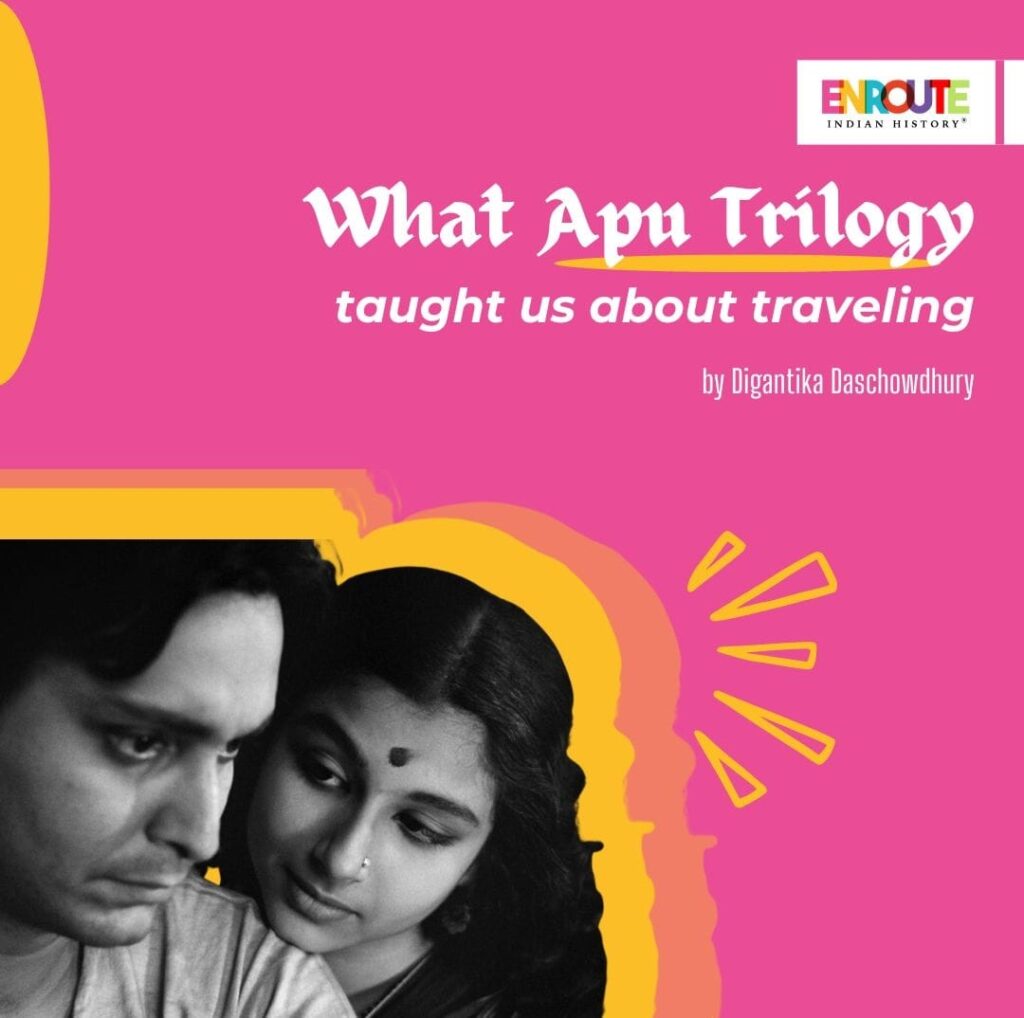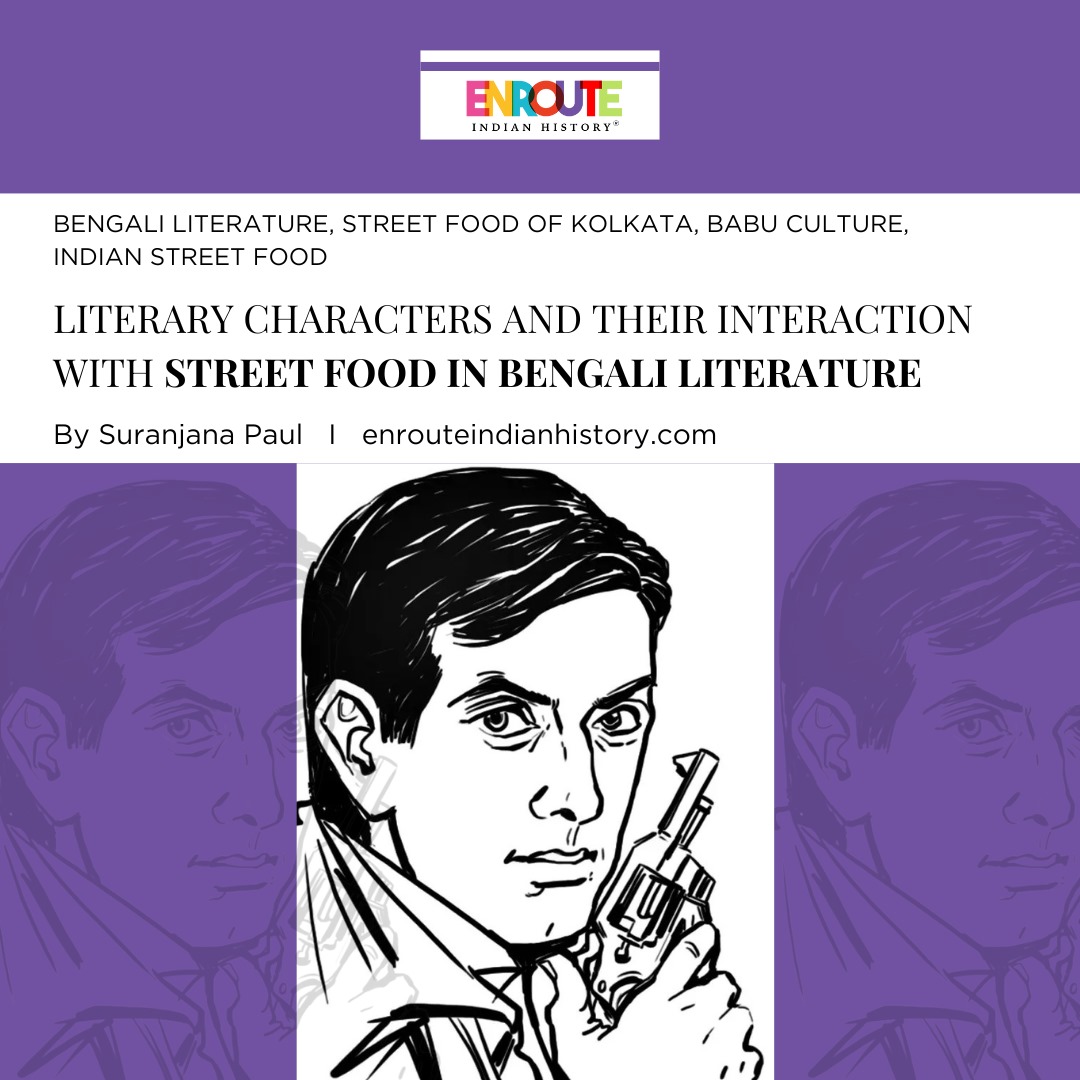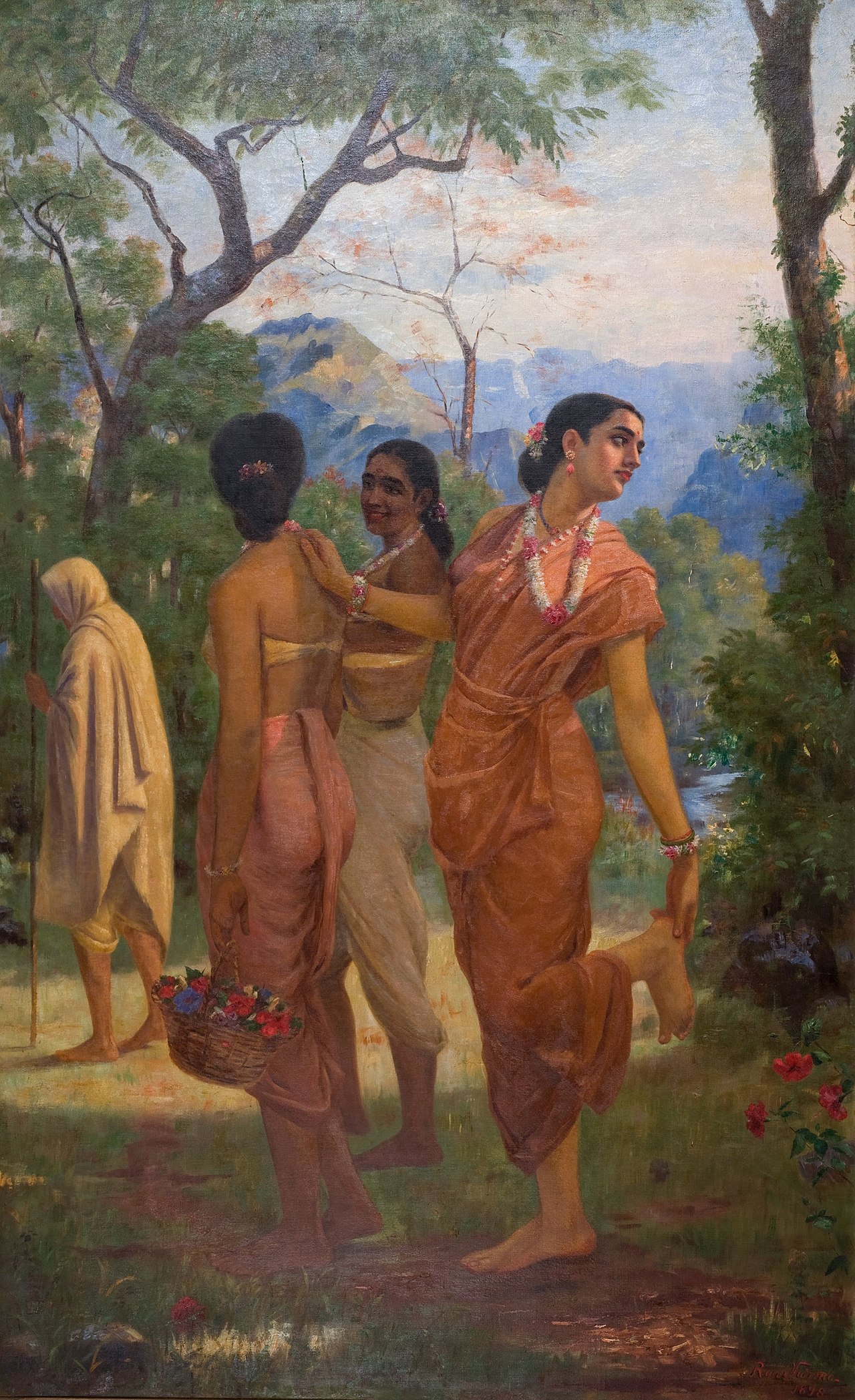
“এই পথ যদি না শেষ হয়, তবে কেমন হতো তুমি বলোতো?” (What if this road never ends then how will it be, you tell me) ― a Bengali song from the movie Saptapadi (1961).
An essence of itinerancy metamorphosed Indian masses when they came in touch with classical cinema, impacted in ways beyond imagination. Countless number of movies (like – Apu trilogy) had done justice to the concept of travelling and the temperament encircling the whole travelogue. These movies dig up the rare cause as to why certain characters had to commute despite the persistent unwillingness. An attempt is made to recount a psychological outlook of the miseries and extreme anguish faced by commuters, ideally not commuting to be in a state of euphoria but for a better future. Travelling has two flip coin side― either it’s a boon to upper-class patricians or a curse to many bourgeoisies and impoverished people.

Every discussion on cinema will appear to be fragmentary unless you mention the legendary director Satyajit Ray, one of the very few South Asian filmmakers to procure an Academy Award (Oscar). His brilliant filmography is breathing even now, however the focus in this article is neither on his proficient filmography nor a memoir or a eulogy of Ray but an insightful piece of survey on his motion picture series called ‘Apu Trilogy’; divided into
three movies― Pather Panchali (1955), Aparajito (1956) and Apur Sansar also known by the name ‘The World of Apu’ (1959).

Distinct from more commercial Indian films of that time, Pather Panchali announced the arrival of a humanistic, Calcutta-centred Indian art cinema, ultimately paving the way for the emergence of the parallel cinema movement of the 1960’s. Pather Panchali (‘song of the road’) as its name suggests typically indicates a man’s journey of life and the focal point of which is a rural setting. Harihar Roy, a priest by profession and an aspiring poet and
playwright resides in Nischindipur along with his four family members, Sarbajaya (his wife), Indir Thakrun (his elderly cousin) and Apu and Durga (his children). Financial milieu worsened with time but Harihar was sanguine after receiving a promised job role under Mr. Ray’s assistance though his wife, Sarbajaya was cynical about it. She had reasons for being dubious, Harihar was unemployed for few months. Unlike any other rural Bengali man, he had a zeal for better lifestyle and envisioned a grand celebration of rice ceremony for Apu, often such occasions were duly commemorated to keep their honour in front of neighbours.
Apu learnt about Jatra (popular folk-theatre who performed in open spaces to entertain the public) when his teacher and a villager discussed amidst school hours. The Jatra troupes mostly travelled long distances, entertaining and earning a livelihood for survival purposes, one of the very first instances of travelogue in the movie. Then the focus shifts to Harihar, who returned home after a long break, Sarbajaya without hesitating for a moment asks about his salary that had been pending for considerable amount of time. Sarbajaya’s growing concern geared towards her children’s health and overall welfare resulting her to propel Harihar in search of other jobs despite his unwillingness to find one.

A scene from the movie hints Apu and his sister, Durga were enchanted by trains. Belonging from a below-poverty line family refrained them from the probability of travelling by it. Throughout the late twentieth century trains were widely utilized mode of transport that connected the entire Indian subcontinent so it was apparent that travelling was alluring to the children who dreamt of going far. With prospects drying up in the village, Harihar travels to the city for a better job prospect and promises to return with enough money for repairment of their dilapidated house, but had gone longer than anticipated. His prolonged absence sinks the family deeper into poverty, Sarbajaya grows anxious and jittery. Meanwhile Durga falls sick
and passes away, few days later Harihar returns to Nischindipur with acquired salary and some merchandise bought from the city for his beloved members. Upon his arrival he discovers demise of Durga that leaves him heartbroken and air of melancholia engulfed him.

The already dilapidated abode was worse than ever after the storm hit the night Durga was gasping to hold onto life, both the affairs led Harihar and his family to commence the resolution of relocating from their ancestral home to Varanasi for a promising future. Aparajito (the unvanquished), second part of the franchise begins with the family attempting to settle with the unforeseen change of neighbourhood. Harihar continues to be a priest, moreover makes a headway in his new pursuits. Shortly after Harihar perishes, leaving Sarbajaya disoriented, she decides to travel back to Bengal where they settled in the village of Mansapota, under facilitation of Bhabataran (great-uncle). While commuting via train the scene made it pretty evident that Sarbajaya was perplexed and anxious over their future. Apu apprentices as a priest but yearned to attend the local school, upon access to scholarly assistance his academics sky-rocketed. The headmaster and a notable visiting dignitary took special interest in him. Fast forward to few more years, adolescent Apu has done well enough to receive a scholarship to pursue further studies in Kolkata, this made Sarbajaya feel abjured
and dejected. Alike several resolutive individuals yearning for a better life in cities, Apu too without wasting any time promptly travelled to Kolkata by means of a train. Apurva boards the from Mansapota and appears to be in an equanimity state throughout his journey but as soon as the train reaches Sealdah station, he tries to catch a glimpse of the surroundings but was shoved into the herd of commuters, mobilized by the crowd he managed to exit the station. After which he stood still in Harrison Road for a while before proceeding to Patuatola lane. At a four-way juncture he gawked at the sign-board of the lane but was jolted back to reality by a honking-car.
Soon he grew accustomed to urban lifestyle, also acquired a friend named Pulu. While hanging out, they caught a glimpse of a ship vessel which instantly sparked conversation between them, Pulu without dithering asks Apurva whether he desires to travel abroad for better opportunities but Apu instantly fires back by saying that his mother would not allow that, pragmatically Pulu questions Apu’s ambition, advocated himself by stating his
perseverance. Meanwhile holiday season begins, Apu goes back to his abode to spend some quality time with his mother, however it seemed that he invested most of time reading, also apathetically answers to his mother’s inquiries, furthermore returns to Kolkata as soon as he could. After a while, a letter of Sarbajaya exhorted him to pay a visit during Ganesh Chaturthi festival but Apu denies. Around the same time, Sarbajaya passed away, it was too late when Apu learned about his mother’s illness. While travelling back to his village, he appears to be glum and forlorn, an empty house welcomed Apu leaving him in tears and anguished.
Bhabataran beseeched him to stay as well as perform the last rites but Apu responds bleakly, besides abruptly leaves for the city. Orphaned Apu tenaciously decided to never look back by marching towards a better future in Calcutta. The last segment, Apur Sansar (World of Apu) shows Apurva as a grown man, living in a rented room at Tala, Calcutta. Equivalent to his father, he was a fervent novelist, anticipated to get published in the long run. One day he reunites with his friend Pulu, who coaxes Apurva for a trip to Khulna to attend the marriage of a cousin named Aparna. Both friends reach at Khulna, circumstances take a drastic change, Pulu induced Apu to marry his cousin, unable to drop his friend’s request, Apurva accords very perfunctorily. The married couple travels back to Apu’s apartment in Calcutta right after the wedding. He undertakes a clerical job alongside private tuitions, later a loving relationship blossomed yet the young couple’s blissful days are cut short when Aparna departs while birthing, Kajal, their son.
Overwhelmed by Aparna’s death, Apu held his son accountable for his wife’s death and refuted to see his son, shuns his worldly responsibilities and becomes a vagabond―travelling to disparate corners of India, from seaside to mountains. Earning a bear minimum and travelling mostly seemed conventional to him. Several clips from the movie revealed his bewildered nature, typically pensive mood observing the enchanted nature by receiving a deep sense of solace. Meanwhile, Pulu finds out Kajal detested and spurned in his grandparent’s house, promptly apprised Apu regarding the same. At last, Apu jolted back to reality, returns to Khulna to his son. Having seen his father for the first time, Kajal rebuffed to ratify him as a father figure. Feeling dejected Apu, commences his journey back, right at that moment, Kajal follows him. Eventually, Kajal accepts Apu as a companion, they
return to Calcutta to start life afresh. Presumption of travelling flush away sorrows soon switched to contentment of being a father.

The whole franchise of Apu trilogy, made it elucidative that there is no substantial euphoria than being with your loved ones. In Pather Panchali, Harihar’s time was cut-short with his family as he had to travel principally to earn a livelihood, got frugal time with his beloved family members. His children grew accustomed to his unintended truancy, and were closer to their mother. As Apurva grew up, estrangement towards his mother also expanded. Belonging from an impoverished background made it arduous for him to travel to-and-fro. Orphaned Apu at a young age, always had a propensity for exploring every corner of the world, but incapable to do so predominantly due to financial distress. The event of losing Aparna
plunged him to murk, became increasingly difficult for him to come out of that state.Eventually, he realized there is no greater jubilation than being a father figure and gaining unconditional love from his own blood. Satyajit Ray exquisitely underlined the voyages of underprivileged section through these three movies and the austerities that crossed their paths, also revealed the actuality of travelogue to the bigger picture. Hence, one must not
habitually romanticize and glamourize the idea of itinerancy.
References
Ray, Satyajit. Pather Panchali; August 26 th (1955); Kolkata, Government of West Bengal,
https://archive.org/details/PatherPanchali1955720p
Ray, Satyajit. Aparajito, October 11, 1956; Kolkata, Government of West Bengal,
https://archive.org/details/Aparajito1956720p
Ray, Satyajit. Apur Sansar (The World of Apu) , May 1, 1959; Kolkata, Government of West
Bengal, https://archive.org/details/ApurSansar1959720p
Neher, Eric. Satyajit Ray's Apu Trilogy Restored, The Hudson Review, Vol. 68, No. 2
(SUMMER 2015), pp. 281-289 (9 pages) https://www.jstor.org/stable/24757195
Misra, Amaresh. Satyajit Ray's Films: Precarious Social-Individual Balance, Economic and
Political Weekly, Vol. 27, No. 20/21 (May 16-23, 1992), pp. 1052-1054 (3 pages)
https://www.jstor.org/stable/439788
Vineberg, Steve. Home and the World: Reflections on Satyajit Ray, The Threepenny Review, No.
43 (Autumn, 1990), pp. 33-35 (3 pages) https://www.jstor.org/stable/4383925
- May 8, 2024
- 8 Min Read


























